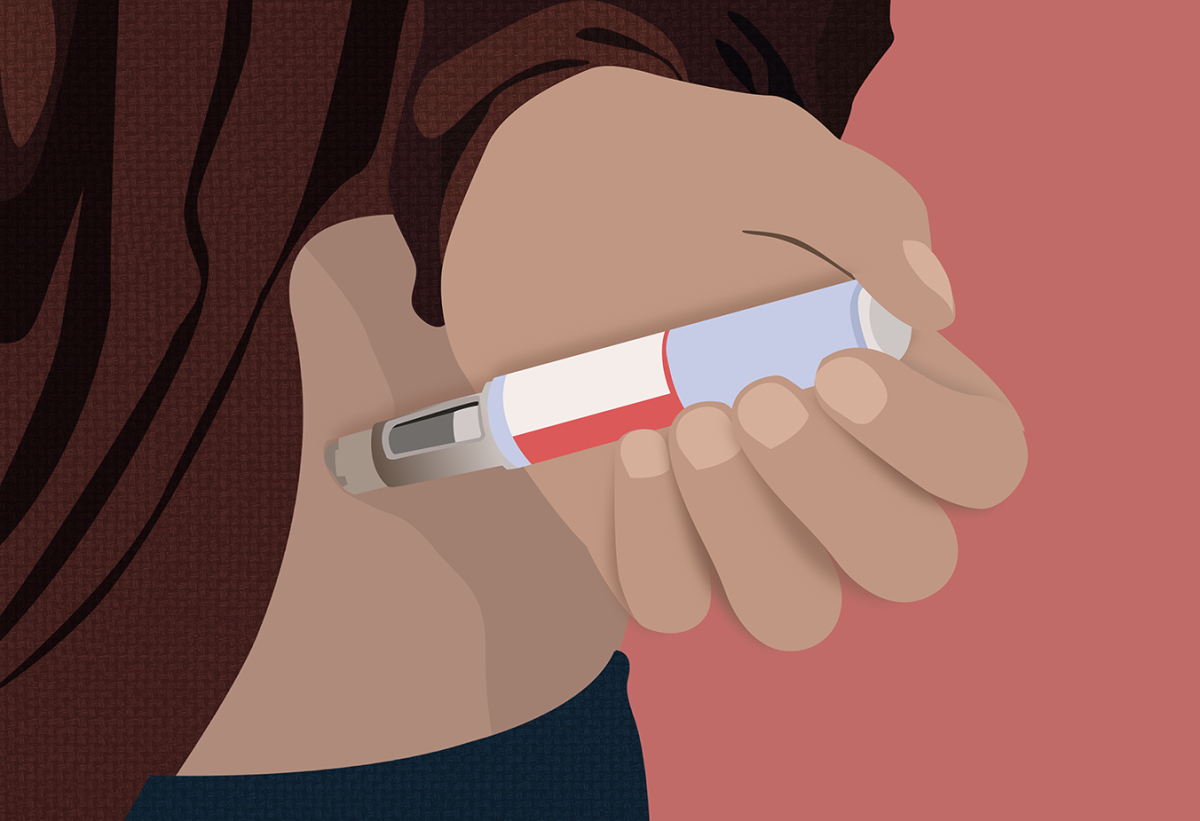Call me crazy if you want, but “Mean Girls” was one of my favorite comedy movies to watch growing up.
It was one of the only early 2000s comedies that I found genuinely funny and not embarrassingly cringey.
However, there is always a part of the movie that has rubbed me the wrong way since I was a kid.
After the main character Cady Heron and her friend Janis Ian give Regina George Kälteen “diet” bars to secretly make her gain weight, other people begin treating her as if she were overweight.
There is one scene in which Regina is trying on a dress for the annual “Spring Fling.” The dress is a size 5, but Regina is having trouble getting it zipped.
When asked for the next size up, the sales associate says, “Sorry, we only carry sizes 1, 3 and 5. You could try Sears.”
As an adult, I now see how this scene is incredibly toxic and pushes the idea that anything over a size 5 is “undesirable.”
As a kid, however, this was probably my first exposure to “diet culture.”
I think we all remember the constant pushing of unobtainable body images and unhealthy eating habits on people during the early 2000s. I, for one, recall countless workouts on Pinterest to help get the oh-so-sought-after thigh gap.
As the years have gone by and the body positivity movement has been pushed to the forefront of mainstream culture, I have been exceedingly grateful for this shift.
Unfortunately, there has been a recent resurgence of this “diet culture,” and Ozempic has been the poster-child of this movement.
Ozempic is an injectable medication meant for managing diabetes that has gained popularity for its extreme weight loss effects.
The drug is easily accessible for the general public, even if they do not have diagnosed diabetes.
According to Fortune Well, “Prescriptions for the drug and similar ones quadrupled between 2020 and the end of 2022, with many providers prescribing it for ‘off-label’ usage, meaning for conditions other than its approved use.”
Fortune also reported that there were 9 million prescriptions for Ozempic written in the last three months of 2022.
Similar to diet pills and fads of the early 2000s, Ozempic and other injectable drugs are turning to social media for exposure.
Recently, plus-size TikTok influencers have received offers from companies weight loss drugs to promote their products.
WeightWatchers even organized a brand event called “GLP-1 House,” a nameplay off the classification for weight loss drugs like Ozempic.
The event operated like any other influencer brand-endorsed trip — guests were given gifts, could attend lectures and had plenty of content creation opportunities.
In a statement emailed to The Washington Post regarding the event, WeightWatchers’ chief marketing officer Amanda Tolleson said the company wanted to encourage people to “reclaim their health.”
While their message may seem sincere, some criticize the usage of influencers for medical advice.
Ragen Chastain, a fat-positive spokesperson, told The Washington Post, “Pharmaceutical companies paying influencers to market their drugs has inherent ethical issues because the influencers cannot be expected to understand the science issues with the drugs. That’s not what they do.”
For anyone considering trying Ozempic for weight loss, there are risks the general public should be aware of. Reported side effects have ranged from nausea and vomiting to stomach paralysis.
Some have also had to seek out additional cosmetic surgery, due to the sudden changes in the stretch of their skin.
Now, I am not going to sit here and claim to have never considered using Ozempic. Who doesn’t want to drop weight fast and without any sweat?
But, I have decided that I don’t want to perpetuate the resurgence of a diet culture that makes young people think a size 6 is bad or that they have to do squats while brushing their teeth to slim down their thighs.
There are healthy ways to lose weight, and weight-loss drugs are not one of them.
































































































































































